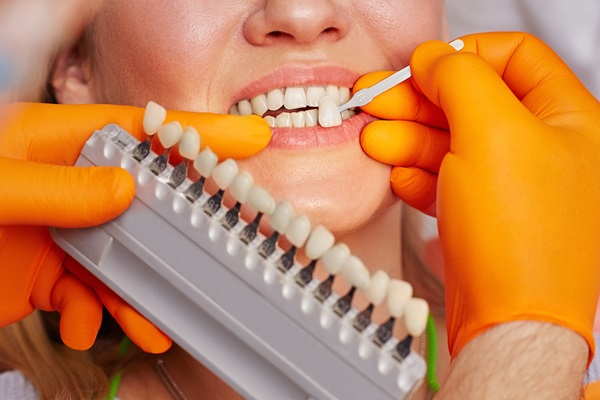The Role Veneers Play in a Smile Makeover

One of the most popular ways to achieve a perfect smile is through a smile makeover with veneers. Veneers, also known as laminates, are one of the most popular treatments for smile makeovers and can be used for misaligned, cracked, or discolored teeth.
Understanding smile makeovers
Smile makeovers are a popular cosmetic dental treatment that completely transforms your smile. But what exactly is a smile makeover? Essentially, it is a customized treatment plan that combines various dental procedures to address your specific dental concerns and enhance the overall appearance of your smile.
During a smile makeover, a skilled cosmetic dentist will carefully evaluate your teeth and gums, considering factors such as alignment, color, shape, and overall aesthetics. Based on this evaluation, they will recommend a combination of treatments, including laminates, dental bonding, teeth whitening, orthodontics, and more.
What are veneers?
Laminates are thin, custom-made shells designed to cover your teeth' front surface. They are typically made of porcelain or composite resin and are bonded to your natural teeth to enhance their appearance. Laminates can solve dental issues, including discoloration, chips, cracks, gaps, and misalignment.
The process of getting laminates typically involves a few steps. First, your cosmetic dentist will assess your teeth and determine if laminates are right for you. They will prep your teeth by removing a small amount of enamel, creating room for the laminates. Next, impressions of your teeth will be taken to create custom laminates that fit your teeth perfectly. The laminates will be bonded to your teeth during the final visit using a strong dental adhesive.
How can veneers improve your smile?
Laminates can greatly improve the appearance of your smile in several ways. First and foremost, laminates can completely transform the color of your teeth. If you have stubborn stains or discoloration that cannot be corrected through teeth whitening, laminates can give you a beautifully white smile that lasts. They can also fix minor misalignments and gaps between teeth, giving you a more even and symmetrical smile. Additionally, if you have chipped or cracked teeth, laminates can effectively cover up these imperfections, making your teeth look flawless.
Maintaining your veneers and new smile
Maintaining your veneers and new smile is crucial to ensure their longevity and continued beauty. Here are some tips to help you take care of your laminates:
- Avoid excessive force or pressure: Although laminates are strong and durable, they can still chip or crack under extreme force. Avoid biting on hard objects like ice, pens, or fingernails. If you participate in contact sports, consider wearing protection such as a mouthguard to protect your laminates.
- Limit staining agents: While laminates are stain-resistant, it is still a good idea to avoid excessive consumption of stain-causing substances like coffee, tea, red wine, and tobacco. If you do use these, rinse your mouth with water afterward and brush your teeth to minimize staining.
- Regular dental visits: Visit your dentist regularly for check-ups and cleanings. They can monitor the health of your laminates and detect any potential issues early on.
Following these simple tips, you can maintain the beauty of your laminates and enjoy a stunning smile for years to come. Remember, proper care and maintenance are essential for the longevity of your laminates and overall dental health.
Request an appointment here: https://www.2thdocs.com or call Decatur Family & Cosmetic Dentistry at (404) 492-5737 for an appointment in our Decatur office.
Check out what others are saying about our dental services on Yelp: Dental Veneers and Dental Laminates in Decatur, GA.
Related Posts
Dental veneers can enhance your smile in a significant way. Research shows that even Hollywood stars get these restorations for a quick but lasting transformation. Discussing the right shade with your dentist will allow you to get the results you want. Here are the benefits of getting dental veneers that you must consider.These restorations are…
A dental exam gives your dentist a chance to examine your teeth and clean them. The American Dental Association advises two dental check-ups per year so dentists can properly care for their patients. This ensures periodical examination of the patient’s mouth and the administration of preventative treatments like dental cleanings.If you cannot remember the last…
A family dentist serves as the front line of defense for oral health and preventive care. They can see patients from childhood all the way through their lives, allowing for a level of continued care, attention, and personal knowledge that is unmatched among other types of dental offices. If you are considering what kind of…
Regular general dentistry visits are necessary for a number of reasons, however, it ultimately comes down to oral health maintenance and preventive care, both of which can only be done in a professional dentistry setting. Keep reading to find out more about the importance of general dentistry visits.Outlined below are a few reasons why regular…


